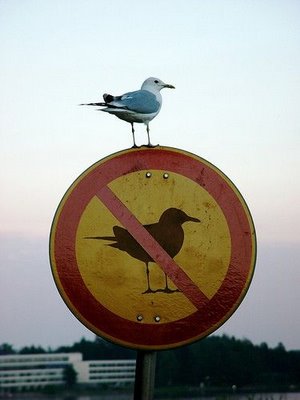In the summer a fellow blogger gave me a book called The Man Who Held the Queen to Ransom and Sent Parliament Packing [1968] by Peter Van Greenaway [not to be confused with Peter Greenaway the film director].
It is a fantastic read.
An army captain called Wyatt organizes and pulls off a more or less bloodless [one person is injured] coup in the United Kingdom. He achieves this by kidnapping the royal family and imprisoning them in the tower of London with the threat that if anyone attempts to reverse the coup then they will begin executing them.
By this method he the organizers of the coup manage to hold power for a short time.
The book uses a style that we are quite familiar with now � ��" using pieces of conversations, excerpts from newspapers and trial transcripts and so on from before and after the fact and bringing it all together at the end. At the time this book was written I imagine that this style was something of a novelty.
One of the things I liked about the book is that although big alarms bells are rightly ringing about the idea of a military coup, we are constantly kept uncomfortable by the fact that Wyatt talks a lot of sense and begins to put in place policies that a lot of people would support.
For example, he asks the US army to leave the UK, withdraws UK troops from Germany and places them under the control of the UN to act as a peacekeeping force [this move also forces the UN to recognize his new government]. He starts reforms of the criminal justice system some of which people might find a little strange but he is not the stereotypical military dictator and allows the press to say whatever they wish and there are no curfews and such like. His stated intention is to prepare the country for real democracy instead of the puppet show that we have at the moment.

The best passages in the book however are not when Wyatt and the other coup leaders are putting policies in place but rather when Wyatt is speaking to those who were [nominally at least] in control before him and explaining the problems with the previous regime. Take this example from when he dismisses the parliament"
� ���"There's no doubt that the system has benefited property speculators, building tycoons, bookmakers and organised crime; there's no doubt that under the system both parties have succeeded in running the country into the ground with the gay abandon of two frustrated spinsters daring their all in a cosy game of Monopoly.
� ���"That you act with a cynical disregard for those you represent is the measure of your dishonesty. That you assume public apathy to your actions is total shows a blindness to reality suggesting outright stupidity.
� ���"I am here to tell you that the country refuses to be led by the nose from the Right, by the hand from the Left. It is prepared to march forward in step with the times with whoever is prepared to give effective leadership. The House is no longer an effective instrument of government. Consequently it is my pleasurable duty to inform you that from this moment you no longer exist. You are free to leave.� �� �
He also takes a great shot at some trade union leaders who are more interested in their upcoming peerages than helping their members and the leaders of both parties are made to seem like absurd cowards and puppets.
In some ways it is similar to the drama A Very British Coup that I wrote about before but in others no. In both cases there is a group of people in the shadows - the people that really pull the strings - waiting for the chance and scheming to ensure the downfall of the new regime. In this book however, unlike the drama, we know from the first few pages that the coup is doomed to fail but that doesn't detract from the story as it unfolds.





